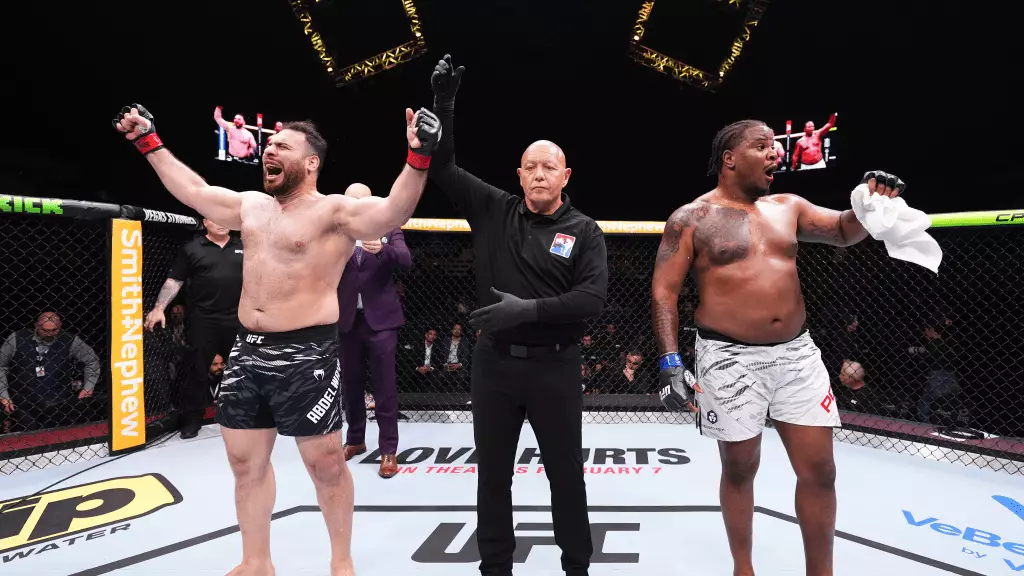In a thrilling matchup that kicked off UFC Fight Night 250 at the ANB Arena in Riyadh, Saudi Arabia, Hamdy Abdelwahab emerged victorious over Jamal Pogues via a split decision. This victory not only marked Abdelwahab’s second appearance in the UFC but also highlighted his resilience after a considerable break from competitive fighting lasting two and a half years. The bout concluded with the judges scoring it 29-28, 29-28, and 27-30, indicating a contentious battle that showcased differing perspectives on Abdelwahab’s performance.
Abdelwahab’s return to the Octagon was overshadowed by a controversial previous fight in which his debut victory was later overturned due to a failed drug test. Such setbacks could dampen any fighter’s morale, but Abdelwahab appeared determined to make a meaningful comeback. However, he admitted to facing numerous challenges leading up to this fight, including health issues that left him struggling to breathe during the bout. “I was just really, really tired,” he explained post-fight, reflecting the physical toll of his recent illness.
Conversely, Jamal Pogues statistically dominated the striking exchanges, landing 69 strikes compared to Abdelwahab’s 52. This raises an important question regarding how decisive striking should be weighed against overall fight control and tactical performance, which may have swayed the judges in favor of Abdelwahab.
Post-fight, Abdelwahab expressed mixed feelings about his performance, stressing that it was not reflective of his true fighting capabilities. The athlete acknowledged his struggles, highlighting the juxtaposition between his desire to win and the reality of not feeling at his best. “I want to apologize to everyone who knows me,” he stated, showcasing his humility and awareness of the expectations placed upon him. The fighter’s eagerness to continue competing in the UFC was palpable, as he stated, “I want to keep going, I want to keep fighting.”
Despite the personal and physical difficulties he faced, Abdelwahab managed to secure the win, a sentiment that sparked an emotional celebration for him post-fight—especially since he had foregone birthday celebrations in favor of training. “I was willing to do everything to get the win,” he reiterated, emphasizing his dedication to the sport.
With this victory now behind him, Abdelwahab’s focus shifts to future bouts as an unbeaten fighter in the UFC. His career record now stands at 4-0 in MMA and 1-0 in the UFC, showcasing his potential for growth in the sport. As he prepares for his next challenge, fans and analysts alike will be watching closely to see how Abdelwahab’s experience and improved fitness will influence his performance in subsequent fights. For Jamal Pogues, the journey continues as he seeks to rebound from this close loss, armed with the knowledge gained from a difficult but competitive fight.
Abdelwahab’s comeback story captivates the audience, embodying the spirit of perseverance and the relentless pursuit of excellence that defines mixed martial arts. The split decision victory may not have been without controversy, but it provides a launching pad for him to assert his dominance in the UFC landscape.

